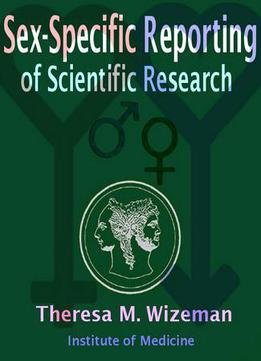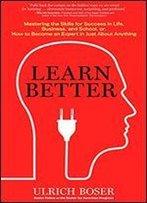
Sex-specific Reporting Of Scientific Research By Theresa M. Wizeman
by Theresa M. Wizeman /
2012 / English / PDF
1.5 MB Download
This issue summarizes the presentations and discussions by the expert panelists during the IOM workshop. The workshop focused on why sex-specific reporting is important. Panelists highlighted historical and current events that have hindered or helped to advance the study of women. Panelists in academe discussed the challenges of collecting, analyzing, and reporting sex-specific data from the researcher's perspective. On August 30, 2011, the Institute of Medicine (IOM) Board on Population Health and Public Health Practice hosted the workshop Sex-Specific Reporting of Scientific Research. The workshop explored the need for sex-specific reporting of scientific results; potential barriers and unintended consequences of sex-specific reporting of scientific results; experiences of journals that have implemented sex-specific requirements, including the challenges and benefits of such editorial policies; and steps to facilitate the reporting of sex-specific results. Presentations and discussions highlighted the importance to both women and men of having sex-specific data, the problems with sample size and financial constraints for conducting the research, the appropriateness of sex-specific analyses, and the limitations of journal policies to change experimental designs. OVERVIEW INTRODUCTION INCLUSION OF WOMEN IN CLINICAL TRIALS FUNDED BY THE NATIONAL INSTITUTES OF HEALTH WHY SEX-SPECIFIC REPORTING IS IMPORTANT Early History The Need to Study Both Sexes Raising Awareness of Sex Differences Barriers to Studying Sex Differences Other Groups Managing the Data THE RESEARCHER PERSPECTIVE: COLLECTING, ANALYZING, AND REPORTING SEX-SPECIFIC DATA Collecting the Data: Sex in Biomedical Research Analyzing the Data: Methods of Subgroup Analysis Reporting the Data THE EDITOR PERSPECTIVE: IMPLEMENTING JOURNAL EDITORIAL POLICIES Editorial Policy-Making Sex and Gender Medicine vs Women’s Health Preclinical vs Clinical Studies Moving Toward Broader Sex-Specific Reporting IMPLICATIONS FOR JOURNALS OF SEX-SPECIFIC REPORTING POLICIES OF JOURNALS Nonclinical Science Journals Interdisciplinary Science Journals Medical Journals Suggestions from the Editors LOOKING FORWARD The Role of Editorial Policy Statistical Power for Subgroup Analysis Summary of Participants’ Suggestions for Advancing Sex-Specific Reporting CLOSING REMARKS REFERENCES APPENDIXES A Workshop Agenda B Speaker Biosketches C Planning Committee Biosketches











